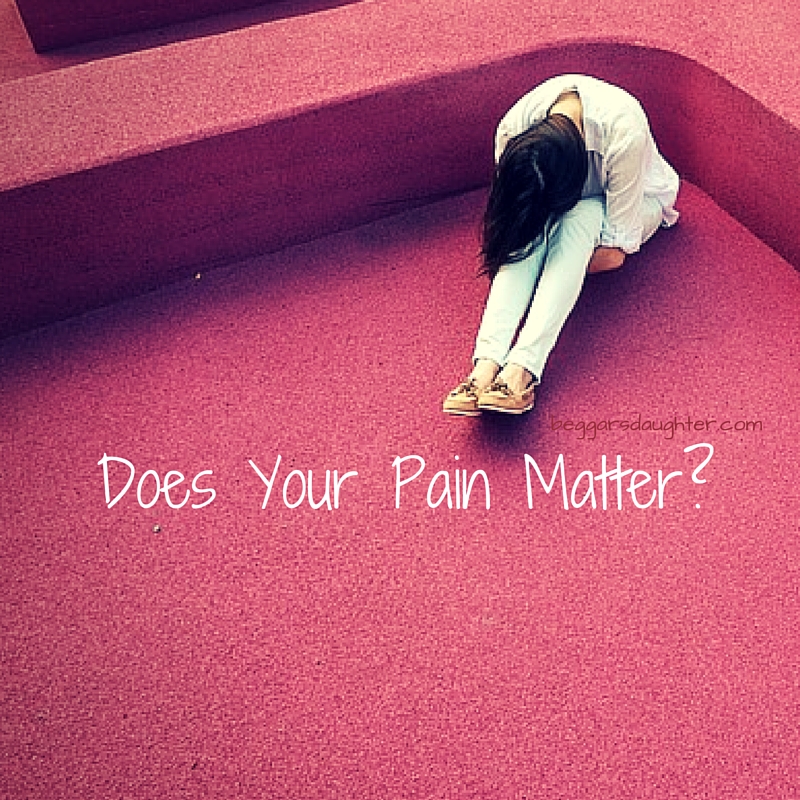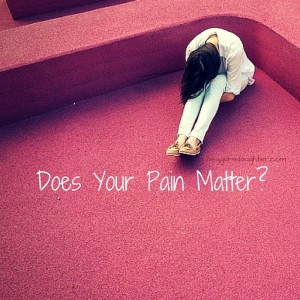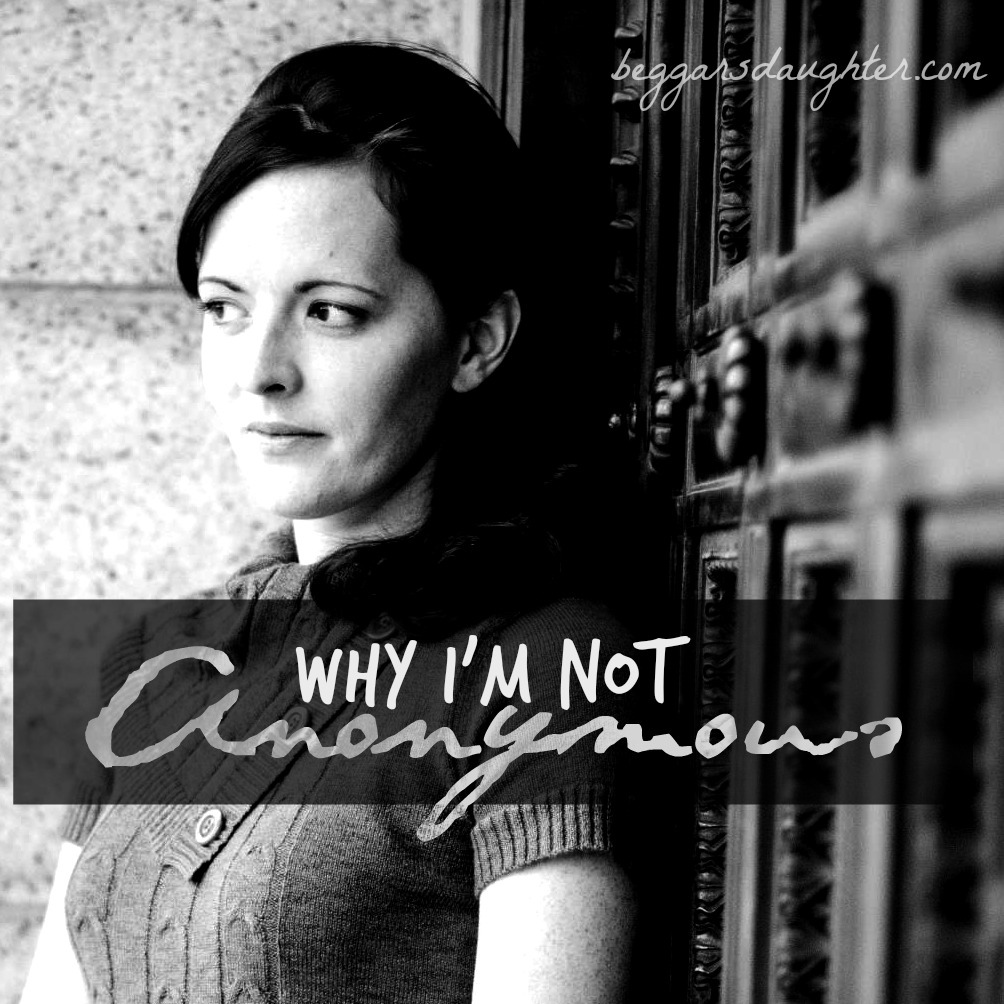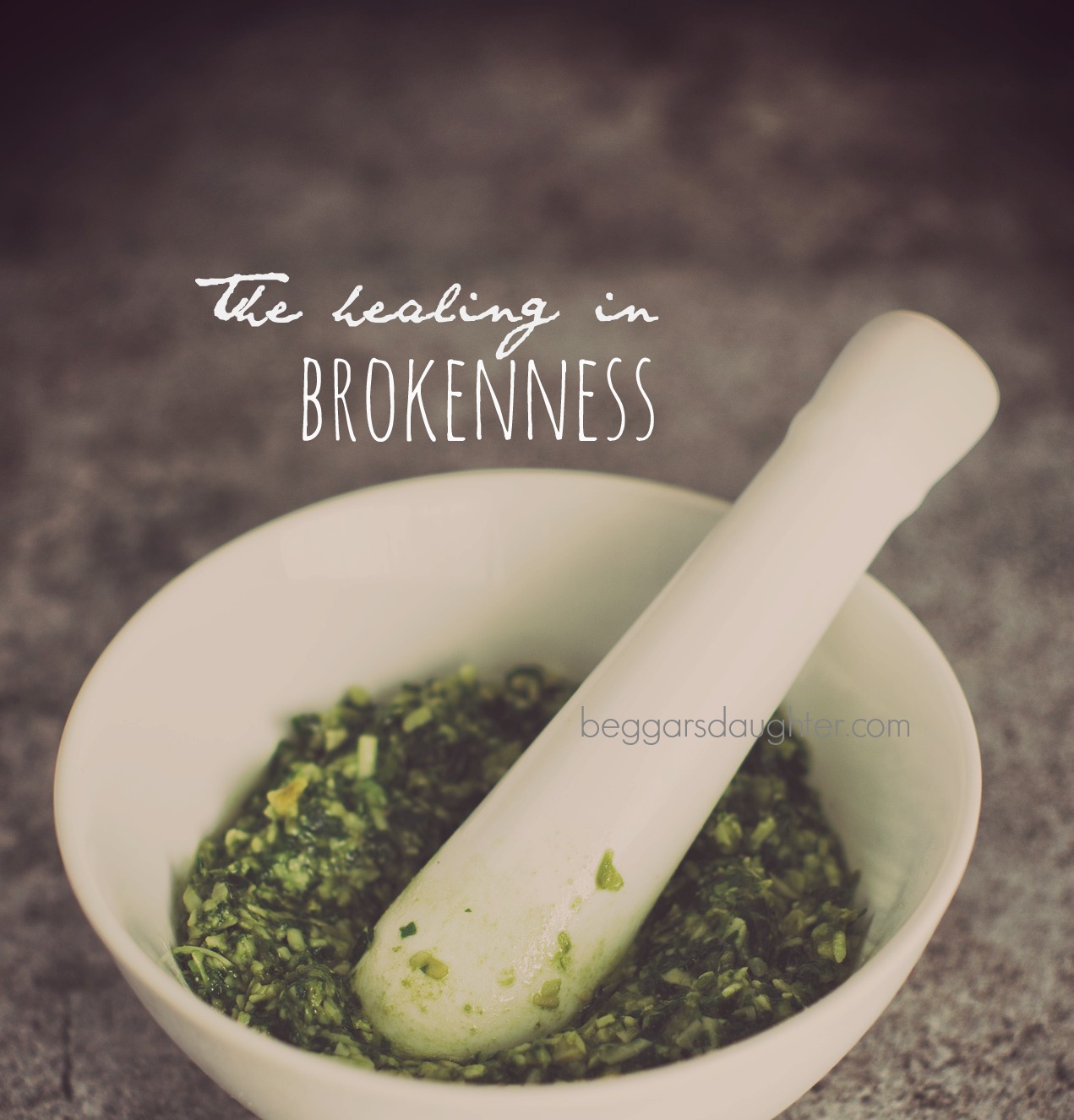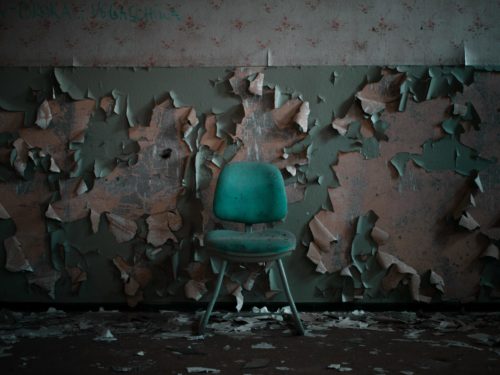Perhaps, like me, you’ve caught yourself saying these things over the past week:
“Well, it’s not as bad as what she’s going through, so it doesn’t really matter.”
“I got myself into this mess, so I have no right to complain.”
“It’s not going to change anything, so why even care.”
I’ve come to a realization over the last few months. We can be ashamed of many things. Even our own pain.
I actually started this post back in November, in light of the terrorist attacks in Paris. It sat unfinished for a while, that is until I found myself in a place of hurt. Nothing in my life compares to the attacks in Paris. Nothing.
I worked on it and had it planned to publish Wednesday. Then, Belgium happened, and it was like Paris all over again. I’m going through my own issues in life, and I can find myself thinking, “Get a grip, Jessica. What you’re going through is nothing like that. Nothing!”
That’s exactly the point.
By day, I work in a doctor’s office. Our patients come in, usually because they are in pain. We ask them to rate their pain on a scale of 1 to 10, with 1 being “pain? what pain?” and 10 being, “I’m pretty sure I’m being skinned alive and/or having a baby.” Everything in between is up to interpretation.
We do that same comparison and range thing when it comes to our own personal pain as well. Not the physical kind but the deep-in-the-heart-and-soul kind. The pain that keeps you up at night and screams at you throughout the day.
Maybe it’s pain from your past. Maybe it’s how someone has treated you now. Maybe it’s how you treat yourself. It could be the sting of loneliness or the trauma of rape. Whatever it is, we’ve fallen into this trap that tells us it doesn’t matter. We need to be stronger. We need to rejoice and trust. We need to remember that “it could always be worse.”
Do me a favor, and remove “it could always be worse” from your jar of Christian fortune cookies. It’s not in the Bible.
Yes, it can always be worse. Always. Regardless of what you are going through, you can search this globe and find someone else who is dealing with something worse. That doesn’t negate your own need for help and healing.
A couple weekends ago, I was having lunch with one of my aunts and one of her friends. I was in the middle of writing my book and dealing with some unearthed trauma in my own life (never fun). We started talking about sexual assault, and my aunt’s friend revealed that she had been french-kissed by her grandfather when she was a teenager.
My own experiences with sexual assault are some I’ve kept mostly quiet over the years. On one hand, I don’t feel like reliving them. On the other, I felt like it was stupid to bring them up. My story pales in comparison to the pain others have experienced.
I worked in a crisis pregnancy center for two years. I’ve heard horrific stories. Women who were raped while being held down by their own boyfriends as part of a gang initiation. Women who were forced to perform oral sex on their pastors. Women who were sexually abused by their own fathers.
I’ve had it “easy.” My incidents are nothing compared to a woman whose husband sold her to his guy friends and sat and watched.
I caught myself saying that over lunch. “Well, it’s nothing like what others have been through.” My aunt stopped me, with tears in her eyes.
“No. No! It matters. That doesn’t mean that you aren’t still hurt. That doesn’t mean it doesn’t still affect you. That doesn’t make it ok.”
So, I’ve been on a bit of a journey of “owning my pain” and God has been faithful to lead along it. Here’s some things I’ve learned along the way.
Comparisons Don’t Matter
We’re taught to compare from the time we’re little. When a child complains about being hungry, they might say, “I’m starving!” At which point, the response is usually something like, “No, children in Africa are starving.” We’re trying to teach perspective.
Instead, the message we give is one of “What you feel right now is nothing like what others suffer, so stop complaining.”
That’s what we can view pain as- complaining. If it’s not significant enough. If it’s not a 10 out of 10, then we’re just whining and need to suck it up and get over it. But pain doesn’t have to be catastrophic to hurt. Yes, there are catastrophic events, such as the attacks in Paris and Belgium, or the kidnapping of girls being forced into the sex trade. That does not negate the existence of personal catastrophic events.
We all experience pain. Your pain isn’t like her pain isn’t like his pain isn’t like their pain. That doesn’t mean you don’t need to deal with your pain.
Self-inflicted Pain is Still Pain
Part of my journey, which I had to open up a bit for the book, was a battle I had with self-harm. I never took a blade to my skin, but, I would hurt so much and be so frustrated that I would start to punish myself. I would bang my head against the tub. I would beat myself with wet rags or run extremely hot water down my body.
Pain for pain. I was making the choices that were hurting me, so I deserved to hurt myself for making those choices. It made sense at the time. This was my fault. I couldn’t “complain.” I was choosing pornography.
If you’re a woman struggling with addiction and feeling crushed under the weight of it and all of the shame. Feeling isolated, alone, and hurting. Even though this is a path you have chosen, it is still pain.
Maybe you’ve sent sexts to someone or have had sex with someone and you’re dealing with fall out of your choices. That pain is not less than or insignificant. It still matters, and here’s why that’s important:
You Don’t Have to Face Pain Alone
You know what feelings of shame and insignificance do to us? They isolate us. They make us shove all of our “issues” into a pretty little box, slap a bow on it, and throw it in the trunk of the car. After all, someone else has it worse, so we don’t need to “bother” people with it. We don’t need to bring it up. We need to be strong. We need to keep it together. Jesus fixes everything. Yay Jesus!
We go about our daily lives like the world is totally together when in reality, it is crashing down around us. Then we go home and feel like a hypocrite and a fake and a fraud. Then we feel like we can’t tell anyone because we are a hypocrite and a fake, and a fraud. And Jesus! Well, why would He want to help us? After all, we’re hypocrites, fakes, and frauds.
But, as Easter approaches, I think of Jesus in the Garden of Gethsemane. He was in torment. He, the almighty, all-powerful Son of God, who chose this, was in pain. And what did He do? He took people with Him.
He asked His closest disciples to keep watch with Him as His grieved heart poured out in anguish. Yes, He went off on His own, but He was not alone there in the garden. Grant you, His companions were a little sleepy, so that wasn’t too helpful. (Read Matthew 26:36-46 for the whole story). But Jesus Himself involved people in His pain. He called on God and His closest friends, even though this was a pain He had chosen, and a pain they did not understand.
I love what Ann Voskamp says in a post she wrote during a visit to Israel.
“There’s hope in our hells when we become like Jesus to each other.”
So the next time you catch yourself looking at the world around you thinking, “My pain doesn’t matter,” I want to encourage you that it does. Whatever is eating at your heart, whether it seems significant or is self-inflicted, is a hurt worth healing from. Whatever that is and wherever you are, there is hope for that. You don’t have to hurt alone.

